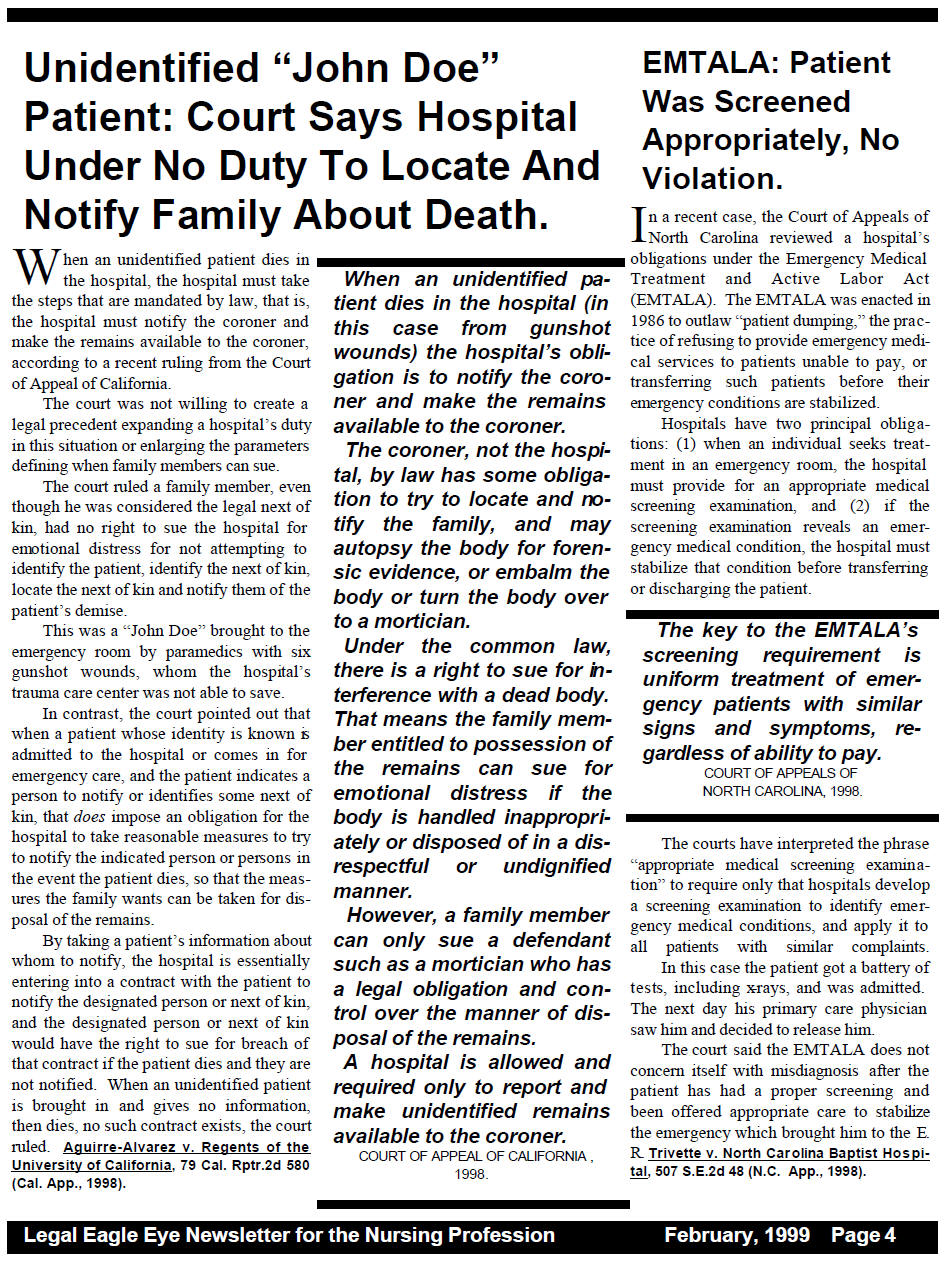Unidentified Hospital Patient: No Duty to Locate and Notify Family, Court Says

More from nursinglaw.com
http://www.nursinglaw.com/post-mortem-nurse-care.pdf
Unidentified Hospital
Patient: No Duty to Locate and Notify Family, Court Says
Quick Summary: When an unidentified patient dies in the hospital (in
this case from gunshot wounds) the hospital’s obligation is to notify the coroner and
make the remains available to the coroner.
The coroner,
not the hospital, by law has some obligation to try to locate and notify the
family, and may autopsy the body for forensic evidence, or embalm the body or
turn the body over to a mortician.
Under the
common law, there is a right to sue for interference with a dead body. That
means the family member entitled to possession of the remains can sue for
emotional distress if the body is handled inappropriately or disposed of in a
disrespectful or undignified manner.
However, a family member can only sue a defendant such as
a mortician who has a legal obligation and control over the manner of disposal of the
remains.
A hospital is allowed and required only to report and make
unidentified remains available to the coroner.
COURT OF
APPEAL OF CALIFORNIA , 1998.
When an
unidentified patient dies in the hospital, the hospital must take the steps that
are mandated by law, that is, the hospital must notify the coroner and make the
remains available to the coroner, according to a recent ruling from the Court of
Appeal of California.
The court was
not willing to create a legal precedent expanding a hospital's duty in this
situation or enlarging the parameters defining when family members can sue.
The court
ruled a family member, even though he was considered the legal next of kin, had
no right to sue the hospital for emotional distress for not attempting to
identify the patient, identify the next of kin, locate the next of kin and
notify them of the patient's demise.
This was a
"John Doe" brought to the emergency room by paramedics with six gunshot wounds,
whom the hospital's trauma care center was not able to save.
In contrast, the court pointed out that when a patient
whose identity is known is admitted to the hospital or comes in for emergency care, and
the patient indicates a person to notify or identifies some next of kin, that does
impose an obligation for the hospital to take reasonable measures to try to notify the
indicated person or persons in the event the patient dies, so that the measures the family
wants can be taken for disposal of the remains.
By taking a
patient's information about whom to notify, the hospital is essentially entering
into a contract with the patient to notify the designated person or next of kin,
and the designated person or next of kin would have the right to sue for breach
of that contract if the patient dies and they are not notified. When an
unidentified patient is brought in and gives no information, then dies, no such
contract exists, the court ruled.
Aguirre-Alvarez v.
Hospital, 79 Cal. Rptr.2d 580 (Cal. App., 1998).
